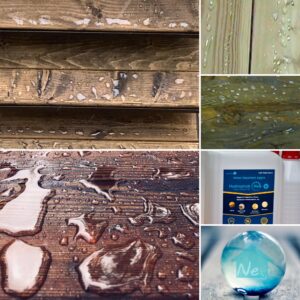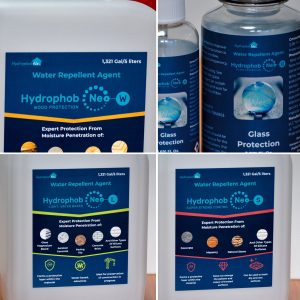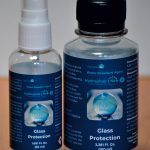Wood coatings: paints or water repellents?
It is well known that wood is a strong, aesthetically pleasing, and very durable material when properly maintained and used. At the same time, under certain conditions of use, particularly when it becomes wet, wood may rapidly decompose because of organic decay or natural weathering agents. And the main acting agent is water.
Usually, wood is protected against water damage by impregnation with drying oil or coating by lacquers or paints, but by using these methods of treatment you lose the essential advantage of wood – its ability to “breath”. The alternative way is wood treatment using water repellents that preserve vapor permeability and allow the wood to “breathe”.
What are the pros and cons of these coatings?
Paints
Pluses: wonderful decorative effect.
Minuses: non-durable, needs regular restoring, as once a crack or scratch has occurred, nothing can stop the penetration of water, which accelerates the destruction of a coating film.
Water repellents
Pluses: forms an invisible coating, demonstrates high water repellency, easy-to-use.
Minuses: treated surfaces may be further painted (if it’s necessary) only with an oil-based or alkyd based (not a water-based!) paint.
What to use?
It’s your choice!
But if you are a fan of natural and pristine wood surfaces, if it’s a wonderful thing for you to smell the natural wood scent, water repellents are your best choice!
And we recommend HydrophobNeo-W, specially designed for the best protection of wood surfaces from moisture penetration and water saturation.
How to use





